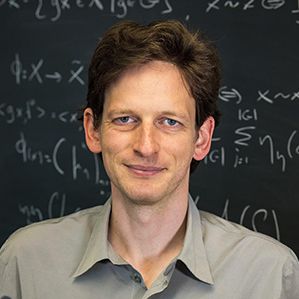Research Focus
Tomer Ullman is a cognitive scientist interested in common-sense reasoning and building formal models that explain how children and adults learn new theories that explain the world around them. In particular, his work focuses on how people develop an intuitive sense of the behavior of objects and other persons (intuitive physics and intuitive psychology). A better understanding of this process will go a long way towards explaining the basics cogs and springs of human reasoning and help bridge between foundational intuitive concept to formal learning in math, physics, logic, and science more broadly.
My plans for the fellowship period
During the Jacobs Research Fellowship period, I plan to use multiple empirical and theoretical methods to pursue novel projects tied to play, learning, and social interactions. The first project begins with the simple notion that having a teacher convey accurate and information is not enough. Suppose a teacher does exactly that, yet is clearly acting like an automaton. You will tune out. I will examine the hypothesis that children learn to detect automatic behavior early on; that it will matter for whom they learn from, and how much they expect to learn. The second project considers loopholes in childhood, where children learn to exploit multiple meanings to get around rules if their desires are not aligned with others. I hypothesize that loophole behavior begins at the start of formal education, and correlates with the development of executive function, humor, and counterfactual reasoning. The third project develops formal models of play, suggesting it is a distinct mental operation that ‘supposes’ goals, beliefs, and constraints, and then plans through this supposed-situation. This is useful for animals with changing niches such as ourselves, suggesting children will prefer challenges in play-problems, as opposed to easy solutions to real problems.
How will my work change children’s and youth’s lives?
The novel research projects I mean to pursue each have implications and applications to early education and social interactions in childhood. Models of play, the miscommunication of goals, and the detection and influence of automatic behavior on pedagogy are all likely key factors that influence what and how much children learn, and how well they transfer their knowledge to new situations. Learning situations that appear ‘the same’ in terms of the information they convey might vary crucially depending on context, motivation, and framing. If children think of the situation as a ‘play’ situation as opposed to an ‘exploit’ situation they may be much more likely to accept challenges. If children detect their social partner or teacher isn’t “really there” but is acting automatically and going through the motions, this may lead to much reduced generalization, attention, motivation. Children of different backgrounds and ages may also be variable in this intuitive-psychology ability to detect if someone else is behaving automatically, meaning this is a key factor accounting for individual variability. Understanding these factors will help meet the challenge of scaling education through technology, supporting children’s individual learning differences.


